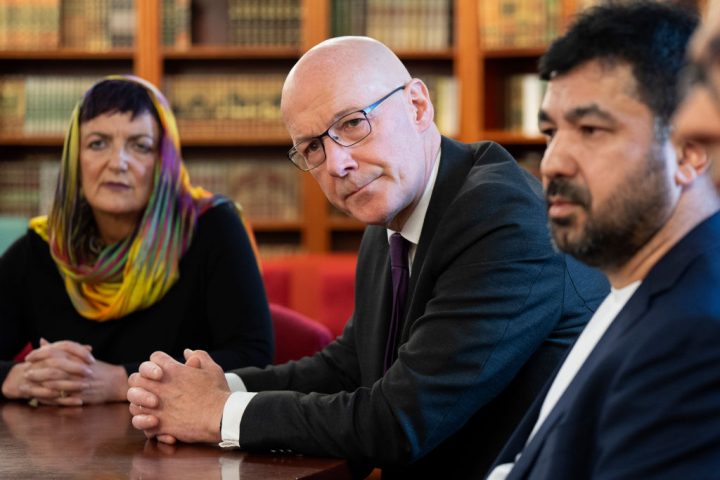Many Scots – including political leaders who should know better – talk of their fellow countrymen as if we are uniquely moral and decent. The rise of the SNP has been accompanied by a new wave of Scottish exceptionalism; simply to have entered the world in a Glasgow hospital is to confer up on a person greater wisdom and kindness than someone who arrived in Oxfordshire.
And so it was quite a relief when First Minister John Swinney convened a meeting of political leaders and faith groups in Edinburgh while riots scarred the streets of England and Northern Ireland. We might not have seen that kind of carnage in Scotland but when it comes to racism and hatred, we’ve more than enough to share.
Of course, the victims of racism do not need to directly experience each incident for it to have a impact. Swinney was right to recognise Scotland is not immune from this ancient hatred. Over recent days, I’ve witnessed the psychological effect, again.
My boy, in common I imagine with most 14-year-old boys raised and educated in a major city, has a friendship group that takes in a number of different races and faiths. These lads have been spending most of their school holidays engaged in epic football matches with whichever other kids they pick up at a municipal pitch, in the west end of Glasgow anywhere between Anderston and Knightswood.
My boy’s best mate is Muslim and, when rumours spread last week that far-right thugs were planning to bring their chaos to George Square in Glasgow, his and some of the other lads’ mums grew increasingly worried. Police Scotland was swift to close down this particular piece of fake news but the force’s reassurance was not enough: the boy’s best mate and a few others would not be leaving home. One in, all in. If some couldn’t go out, none of them would.
The lads make small, unremarkable compromises for each other, often. When they are not playing football, for example, they will be in one of several local fried chicken shops, a choice dictated by the fact that some of them must eat a Halal diet. Having detected between themselves the sort of difference that can spur adults into murderous rages, they overcome it by having fried chicken for tea because they all like it and they can all eat it.
Of course, the sort of racism we’ve seen so nakedly expressed over recent weeks is nothing new to some of the lads. They put up with the most appalling abuse on a regular basis for all of their lives, yet they remain open and trusting of people until given good reason not to be.
A conundrum for any parent, I think, is the degree to which we discuss race and differences of faith and culture with our children. Yes, we want them to appreciate that not everyone’s life experience is the same but we don’t want them to start life thinking of others as ‘different’. For now, the boy and his mates seem to be figuring this stuff out pretty well for themselves.
The boy tells me a bit more about the sort of things some of his friends have been putting up with, long before race-hate became so overt. A common story in Scotland is of how welcoming we are towards refugees. The smug, complacent (middle-class nationalist) narrative goes that we open our arms to the scared and weary and hug them to our hearts.
Yet the boy tells me how one of the boys’ mums, a refugee who moved into on of the city’s more deprived areas, has been the victim of relentless racist abuse from her neighbours, a group of young white friends who spend their days smoking weed and filling her flat with the stinking reminder of the misery they bring. Things have become so bad that this kid’s mum now prefers him not to have white pals in the house. The boy gets it. All of them do which is why if one of whichever configuration the group takes on a particular day cannot go, none of them do.
Not only are we complacent in Scotland about recognising racism, when we do recognise it, it is often seen in the most simplistic, cartoonish terms. Often, Scottish nationalists will characterise their opponents as British nationalists, as racists who wish to exclude ‘outsiders’. Nationalists can’t help thinking everyone else must be some kind of nationalist, I suppose, but the truth is that we’re little better than anyone else.
The issue of immigration might not be quite the feverish topic it is south of the border. It might be nice to think this is because Scots are peculiarly compassionate, but the simple truth is that immigration does not have the same impact in Scotland as it does in certain parts of England.
I don’t know how long this colourblindness among the boy and his mates lasts. I hope forever. I hope they maintain their instinct to stick together while others are screeching division.








Comments